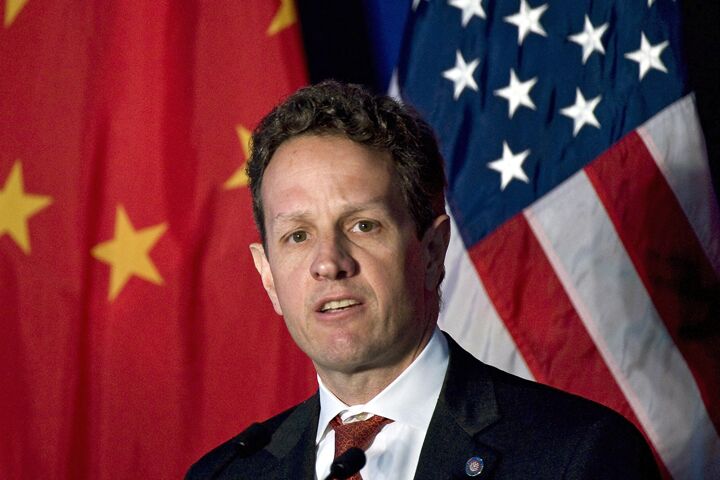
America Begs China for Money—and the Chinese Laugh!
On Monday, Treasury Secretary Timothy Geithner told Chinese government officials that their money was safe and that America wants a strong dollar. His Chinese audience broke out in loud laughter. The cost of borrowing is going up, and America’s desperation is making it an international laughingstock.
Geithner visited China this week to allay fears that Washington’s bulging budget deficit and ultra-loose monetary policy are a veiled attempt to repudiate its debts by fueling inflation. The U.S. government directly owes China over $760 billion, but including other agency debt, such as Fannie Mae and Freddie Mac liabilities, estimates place total debt to China in excess of $1.5 trillion.
As America’s most important creditor, China is receiving a lot of high-profile U.S. guests lately. In February, for example, Secretary of State Hillary Clinton was sent to China to urge continued Chinese investment in America.
Without Chinese money, America would have little chance of financing current expenditures short of having the Federal Reserve simply create the needed dollars. The Chinese are worried that even with their money, America may be forced to create untold billions to pay for the record expenditures outlined by the U.S. administration.
“Chinese assets are very safe,” Geithner said in response to a question after a speech at Peking University. His response drew loud laughter from the student audience, which according to Reuters was a reflection of growing Chinese sentiment that China should be spending its vast reserves at home as opposed to taking the risk of lending the money to America.
In his speech, Geithner pledged that America would cut its massive deficits and work toward balancing its budget. He said the United States had the biggest and most liquid market for “risk-free assets in the world” and that it was committed to bringing the budget gap back to a “sustainable level.”
“We believe in a strong dollar … and we’re going to make sure that we repair and reform the financial system so that we sustain confidence,” he said.
Despite the laughter, later in the day, Vice Premier Wang Qishan came to Geithner’s aid saying that it was important the two nations work together in “practical cooperation to address the crisis.”
But at least a portion of the cost to America for Chinese support is already becoming clear. In his speech, Geithner offered U.S. support for China’s drive for a bigger role in international policymaking, including possibly a decision-making role with the International Monetary Fund—an organization historically dominated by the U.S. government.
The dangers of foreign debt could be about to be brought home to America. The borrower truly is servant to the lender (Proverbs 22:7). America’s recent actions bear this out.
